Meet the UC San Diego Delegates Headed to Egypt for UN Climate Conference
Students and faculty from Scripps Institution of Oceanography and School of Global Policy and Strategy prepare to attend COP27 in Sharm El-Sheikh, Egypt
Story by:
Published Date
Article Content
World leaders, climate experts and policymakers from nearly 200 counties are preparing to descend upon the seaside city of Sharm El-Sheikh, Egypt for a United Nations climate conference that kicks off next week.
Nearly 30 delegates from UC San Diego’s Scripps Institution of Oceanography and the School of Global Policy and Strategy will be among the attendees of the 27th Conference of the Parties, or COP27, an event hosted Nov. 6-18, 2022 that is focused on orchestrating a global response to climate change. Composed of students, faculty and staff, the UC San Diego cohort is part of the University of California observer delegation, which includes affiliates from several other UC campuses.
The oceans will have a larger-than-usual presence at the annual conference this year thanks to a new Ocean Pavilion organized by Scripps Oceanography, Woods Hole Oceanographic Institution and several other leading ocean science and philanthropic organizations. Located inside the conference’s official meeting area or “Blue Zone,” the Ocean Pavilion will serve as a hub for the ocean science community to advocate for protection of the planet, sharing UC San Diego-led research with COP27 delegates on how to address climate change by leveraging the ocean.
“The ocean is the engine of climate, and we need everybody to understand that,” said Margaret Leinen, director of Scripps Oceanography and vice chancellor for marine sciences at UC San Diego. “By having UC San Diego students, faculty and others that are part of the delegation, we have so many ambassadors to get that message out—and each one can tell their own story about how their work is important to the ocean and important to climate.”
UC delegates will be further immersed in the conference by attending and participating in other panels and side-events and by sharing information on the “Bending the Curve” climate curriculum and a new system-wide Climate Justice course led by the UC Center for Climate Justice. The programs are highlighted at the exhibit Youth Leading for Climate Action, co-hosted by University of California, Colorado College, Vanderbilt University and other universities and youth advocacy organizations.
We caught up with the students and faculty who will bring UC San Diego research to a global stage at COP27. This includes 16 Scripps graduate students who will be attending the conference thanks to support from Logitech, a global company that designs products that help businesses connect and bring people together when working, creating, gaming and streaming. Read on to meet the delegates and learn about what they hope to achieve at COP27, and check out this list to follow the UC San Diego and Ocean Pavilion delegations on Twitter.

Anela Akiona, Scripps PhD Student
Attending week one
Anela Akiona is a fifth-year PhD student in marine biology at Scripps where she is researching how different life history strategies influence species distribution on coral reefs, which are under threat from climate change. Akiona uses data from scuba surveys to model how emerging interventions might make reef ecosystems in the Maldives, an island nation that relies heavily on coral-related tourism, more resilient as global temperatures rise. Her research seeks to bridge the gap between conservationists, managers and scientists as the Maldivian government works to build their national coral conservation strategy. “At COP27, I’m most looking forward to meeting and learning from climate leaders from Indigenous communities and small island developing states,” said Akiona.
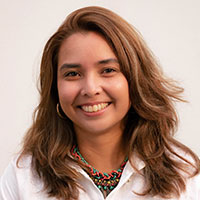
Denise Alcantara, Scripps MAS MBC Student
Attending week one
Denise Alcantara is a student in the Master of Advanced Studies program in Marine Biodiversity and Conservation (MAS MBC) at Scripps, where she plans to conduct a comprehensive evaluation of reef-related policies, conservation and management efforts in the Philippines as her capstone project. Aside from representing the Philippines at the climate conference, Alcantara hopes to understand the dynamics of policymaking at a global scale. “This is also an opportunity to further raise awareness on the realities of living in one of the most climate vulnerable countries on Earth,” she said.
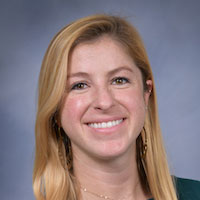
Katrina Boyd, School of Global Policy and Strategy Master of International Affairs Student
Attending week two
Katrina Boyd is a second-year Master of Public Policy candidate at the UC San Diego School of Global Policy and Strategy where she is focusing on environmental policy, sustainability and global food security. She is passionate about creating policies and programs that will build climate-resilient food systems. "A major theme at COP27 is adaptation for agriculture, which fits perfectly with my own experience and interest in helping vulnerable communities prepare for the future,” Boyd said. “In Egypt, I'm looking forward to engaging on these issues with climate leaders from around the world."
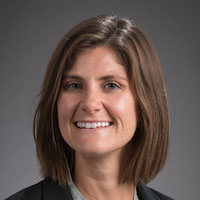
Emily Carlton, School of Global Policy and Strategy Research Associate for the Deep Decarbonization Initiative
Attending week two
Emily Carlton, '21, graduated from the UC San Diego School of Global Policy and Strategy with a Master of Public Policy with dual concentrations on environmental policy and program design and evaluation and a regional focus on Latin America. She currently serves as a research associate at the UC San Diego Deep Decarbonization Initiative. Her work focuses on how to rapidly eliminate warming emissions from key sectors—such as aviation, ground transportation and electric power—given the political and technological conditions unique to each. “I think this COP is an important opportunity for us—young climate professionals from the developed world—to grapple with the full scope of the climate challenge,” Carlton said. “The focus of COP27 will be on climate justice—how to support the countries most affected but least responsible for global warming. It will be enormously beneficial for us to engage and learn directly from our colleagues who come from those countries.”
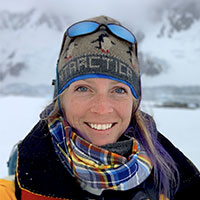
Allison Cusick, Scripps PhD Candidate
Attending week two
Allison Cusick is a PhD candidate at Scripps where she is studying the effects of melting glaciers on phytoplankton communities in nearshore coastal regions of the Antarctic Peninsula. Her goal is to understand how climate change is affecting the first level of life—the phytoplankton—which provide food to krill, a key food source for larger animals across the food web including whales, seals and penguins. Cusick’s research is conducted through the framework of FjordPhyto, a citizen science program that runs in partnership with the International Association of Antarctic Tour Operators, polar guides and tourists traveling to Antarctica. “By attending COP27, I hope to learn more about global efforts to manage polar marine resources in the face of the climate crisis and plan to take this information back to state and local policymakers,” said Cusick.
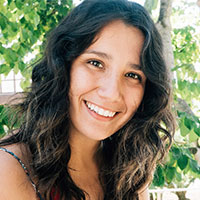
Erica Ferrer, Scripps PhD Candidate
Attending week two
Erica Ferrer is a sixth-year PhD candidate in the Aburto Lab at Scripps, where research is underway on a variety of coastal landscapes and processes known to shape marine ecosystems in Latin America—and in particular, Mexico. Ferrer is a community ecologist, and her research focuses on small-scale fisheries, sustainable seafood, climate change and the conservation of biodiversity. "Understanding the impacts of climate change on marine organisms, ecosystems and the human communities they are connected to is very important to me and an increasingly talked about theme at COP,” Ferrer said.
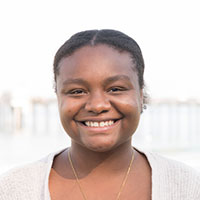
Kiirah Green, Scripps Master’s Student
Attending week two
Kiirah Green is a master's student who is studying deep-sea biology in the lab of Greg Rouse, where her research is focused on several newly discovered species of deep-sea worms. Shelooks forward to attending COP27 as an opportunity to be immersed in Egyptian culture and to experience firsthand the discussions about global climate change. Green said that with her being an African American woman, Egypt is a culturally significant place for her as she has been passionate about studying the country’s rich and advanced history from a very young age. “To couple that with my love for climate science, conservation and marine science, just learning about this experience has re-inspired me to understand the importance of nationwide policy work, how much COP does, and how I would like to eventually use my career to get involved,” she said.
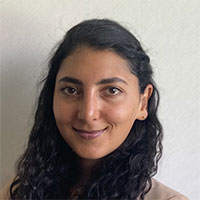
Michelle Guraieb, Scripps Master’s Student
Attending week one
Michelle Guraieb is a master's student in biological oceanography at Scripps, where she studies deep-sea benthic communities that live on hard substrates in low-oxygen environments. Baseline studies of this nature are important to improve the understanding of deep-sea ecosystems, especially in the face of climate change, which continues to change the environmental conditions that make life in the ocean possible. Guraieb’s goal is to improve the understanding of deep-sea ecosystems and promote the development of policies that allow these ecosystems to thrive, and the services they provide to continue. “As an early-career scientist, my attending COP27 can provide an opportunity to engage with policymakers while learning about the important steps being taken to address the climate crisis,” said Guraieb.

Noel Gutierrez Brizuela, Scripps PhD Candidate
Attending week two
Noel Gutierrez Brizuela is a physical oceanography PhD candidate who investigates how the ocean responds to tropical cyclones, modulates warming and impacts future climate and sea-level rise. His career goal is to develop projects that use the ecosystem services of natural areas to increase resilience against extreme events in developing countries. “With my graduation less than a year away, I would like to attend COP27 to engage with people and institutions working on such projects and identify opportunities to contribute my expertise in climate and ocean science to help ensure climate safety for vulnerable populations,” he said.
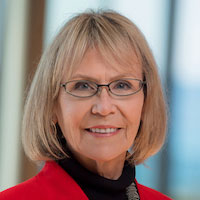
Margaret Leinen, Director of Scripps Oceanography
Attending week two
Margaret Leinen is the director of Scripps Institution of Oceanography and vice chancellor for marine sciences at UC San Diego. She is an award-winning ocean biogeochemist and paleoceanographer whose research includes study of ocean carbon cycling and the role of the oceans in climate. Leinen has served as the president of the American Geophysical Union and The Oceanography Society. She also served as Chair of the US Global Change Research Program and was a US Dept of State Science Envoy for the Ocean. Leinen currently serves as a member co-chair of the Decade Advisory Board for the UN Decade of Ocean Science for Sustainable Development. At COP27, Leinen will engage in daily activities at the new Ocean Pavilion and serve as a panelist in several sessions.
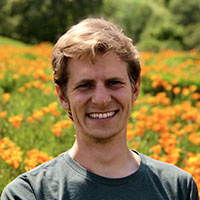
Holden Leslie-Bole, Scripps PhD Student
Attending week two
Holden Leslie-Bole is a second-year PhD student in physical oceanography at Scripps, where he is advised by oceanographer Mark Merrifield. Leslie-Bole’s research interests include coastal processes and machine learning, with a goal of understanding how climate variability, extreme wave events and sea-level rise change nearshore geomorphology. In pursuing these insights, he uses satellite imagery and LiDAR field surveys to measure the patterns of shoreline erosion and accretion in California and ultimately develop better models of long-term shoreline change and wave runup. After graduating from Yale in 2018, he worked as a program officer at the Carbon Institute on climate policy. “At COP27, I'm looking forward to tracking negotiations in the Santiago Network on Loss and Damage and identifying areas to enhance cooperation on technical assistance for coastal loss and damage," he said.
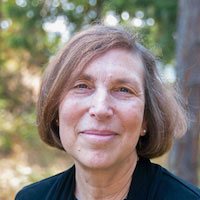
Lisa Levin, Scripps Distinguished Professor Emeritus
Attending both weeks
Lisa Levin is a pioneering biological oceanographer and distinguished professor emeritus at Scripps. Throughout her career, Levin has been at the forefront of research that shows how environmental conditions shape deep-sea communities on continental margins and how climate change is impacting vulnerable ecosystems in the deep sea through ocean deoxygenation. Levin has been a leader in advancing conservation and observation of deep-sea ecosystems and has also made valuable contributions to the fields of coastal wetland ecology and larval connectivity. She founded and co-leads theDeep Ocean Stewardship Initiative (DOSI), dedicated to bringing deep-sea science to policy makers, and has been instrumental in efforts to develop theDeep Ocean Observing Strategy (DOOS), a global initiative to integrate deep observing efforts to benefit science and society. Levin will be participating in several speaking engagements at COP27, where her work will focus on advocating for the deep ocean.
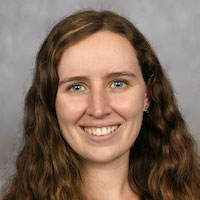
Tricia Light, Scripps PhD Candidate
Attending week one
Tricia Light is a fifth-year PhD candidate studying marine chemistry and geochemistry in the lab of paleobiologist Richard Norris. Light’s research focuses on how the mineral barite can be used to help better understand the relationship between climate change and life in the ocean. She is passionate about science policy and has led climate activism efforts within the Climate Action and Policy Committee led by the Graduate & Professional Student Association (GPSA) at UC San Diego, as well as AGU's Voices for Science program. Light has served as a teaching assistant for UC's Bending the Curve: Climate Change Solutions course. She is excited to attend COP27 and see the ways in which international climate negotiations are and are not informed by scientific evidence. “I hope to use my experiences at COP27 to better inform my research, climate advocacy and teaching in the future,” said Light.

Orion McCarthy, Scripps PhD Student
Attending week one
Orion McCarthy is a fifth-year PhD candidate in marine biology at Scripps. His research focuses on coral reef ecology, specifically how scientists can use emerging 3D imaging techniques to better understand how coral reefs in Maui are changing in response to climate change. McCarthy is currently tracking the fate of coral colonies through successive bleaching events and evaluating a method for quantifying reef resilience so that Maui’s coral reefs can be better managed in the context of climate change. After completing his dissertation at Scripps, McCarthy plans to work in the marine conservation research sphere, conducting applied work with direct relevance to ocean and climate policy. In that way, the climate policy topics under discussion at COP27 have direct relevance to both his current research on corals, as well as his more policy-centered career aspirations. “I am excited to attend COP27 to catch a glimpse behind the curtain and see how international decision making and climate diplomacy are carried out in real time,” McCarthy said.
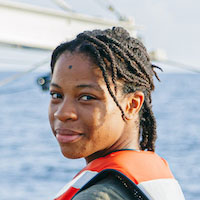
Taylor McKie, Scripps PhD Student
Attending week two
Taylor Mckie is a fourth-year PhD student in the Multi-Scale Ocean Dynamics Lab (MOD) at Scripps, where she studies physical oceanography with a concentration on oceanic boundary layer dynamics. Her research focuses on submesoscale fronts and temperature inversions in salinity stratified oceans, such as the Indian Ocean and polar regions, and the potential impacts of climate change on these systems. McKie was recently inducted into the Bouchet Graduate Honor Society, a prestigious organization that lauded her academic excellence, dedication to social justice and commitment to advocacy for climate action, diversity and inclusion. She has a deep interest in climate change adaptation, resilience research and policy, and plans to have a policy component to her dissertation. “I'm looking forward to witnessing the processes and negotiations at COP firsthand and to experience leaders from all around the world addressing the complex challenges associated with our changing climate,” said McKie.
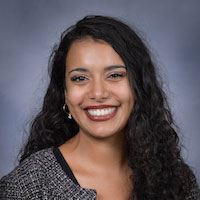
Hana Moumen, School of Global Policy and Strategy Master of Public Policy Student
Attending week two
Hana Zohra Moumen is a French-Algerian researcher and a lecturer for the University of California. Currently in her second year of the Master of Public Policy program at the UC San Diego School of Global Policy and Strategy, she focuses on climate risk, international security and quantitative research using econometrics modeling tools and geospatial data analysis. Moumen has experience working in French diplomacy, the UN headquarters and the U.S National Defense Industrial Association and she is currently working for the United Nations.
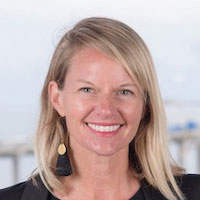
Samantha Murray, Executive Director of the MAS MBC Program at Scripps
Attending week one
Samantha Murray is the executive director of the interdisciplinary Master of Advanced Studies program in Marine Biodiversity and Conservation (MAS MBC) at Scripps, where she teaches graduate courses on ocean law and policy. In 2019, Murray was appointed by Governor Gavin Newsom to the California Fish and Game Commission, where she serves as president. Murray has nearly two decades of professional experience and has directed ocean and water programs at Ocean Conservancy, the Audubon Society and Oregon Environmental Council. She played a key role in the design and implementation of California's network of marine protected areas, which now cover 16 percent of state waters. She has served on the Marine Protected Area Federal Advisory Committee and CalTip Citizens Committee and has held board positions at San Diego Coastkeeper, Upstream Public Health and Citizens for East Shore Parks. She earned a J.D. from Lewis and Clark Law School and is committed to antiracism, inclusion and equitable impacts of public policy.
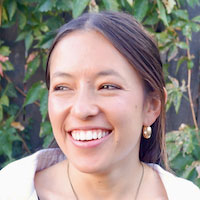
Gabriela Negrete-García, Scripps PhD Student
Attending week one
Gabriela Negrete-García is a fifth-year PhD student studying biological oceanography at Scripps. Throughout her graduate studies, she has focused her research on understanding the impacts of climate change on phytoplankton communities in the Arctic Ocean by developing a biodiverse plankton community model embedded in a global circulation model. Now, Negrete-García plans to bridge the gap between science and policy to find ways to use her research to protect the communities, livelihoods and ecosystems that will be most affected by climate change. During COP27, she wants to learn how international climate negotiations are conducted and how Indigenous and sovereignty rights are included in these negotiations. “Bridging the gap between science and policy is something I am highly interested in, and I believe attending COP27 would provide me with the necessary tools to better understand how to communicate my science to policymakers,” she said.
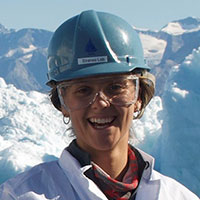
Monica Nelson, Scripps PhD Student
Attending week one
Monica Nelson is a third-year PhD student in physical oceanography at Scripps, where she studies large-scale circulation and ocean transport at high latitudes, with a focus on heat and nutrient exchange in the open ocean. She is interested in how these processes are changing with climate and how those changes may affect the physical drivers of carbon sequestration and storage. Nelson is looking forward to gaining insight on how high-level climate action is achieved and trying to understand how she, as a scientist, can contribute to more rapid and just climate action. “I'm also looking forward to networking with people from all over the world who are trying to affect change to learn from their strategies,” Nelson said.
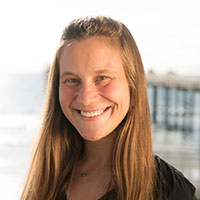
Olívia Soares Pereira, Scripps PhD Candidate
Attending week one
Olívia Soares Pereira is a PhD candidate in biological oceanography at Scripps, where her research in the Levin Lab focuses on deep-sea invertebrate communities found at methane seeps and on continental margins. Her goal is to provide baseline research for deep-sea management and conservation, including recovery and resilience of such communities in the context of climate change. As part of the Program for Interdisciplinary Environmental Research (PIER) interdisciplinary PhD specialization, Pereira is incorporating economic valuation approaches to examine people's awareness of the deep sea and willingness to pay for deep-sea conservation. “As a scientist and science communicator, I think COP27 will be a great opportunity for me to engage with other stakeholders, advocate in deep-sea science, and help communicate deep-sea science at the climate negotiations,” said Pereira.
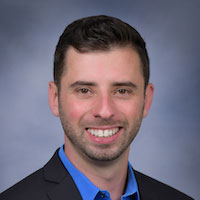
Joseph Persico, School of Global Policy and Strategy Master of International Affairs Student
Attending week two
Joseph Persico is a second-year Master of International Affairs student at the UC San Diego School of Global Policy and Strategy where he is focusing on international politics. He comes from a career in local government with a background in environmental science and GIS. Persico has a strong interest in studying the effects of climate change on international security and global migration patterns. “Understanding the impacts of climate change on security and migration is paramount to developing proactive solutions and reducing harm to human communities,” Persico said. “COP27 presents an opportunity to bring science and policy together and I’m excited to learn and engage with the others at the conference.”
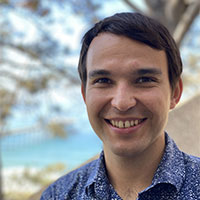
Pascal Polonik, Scripps PhD Candidate
Attending week two
Pascal Polonik is a PhD candidate in climate science at Scripps, where he is co-advised by Scripps faculty who hold joint appointments at the UC San Diego School of Global Policy and Strategy. Polonik is studying the impacts of anthropogenic emissions and the potential impacts of changing emissions under different decision criteria. His current project seeks to quantify the air quality and air quality equity impacts of implementation of U.S. emission reduction targets. “By attending COP27, I hope to gain a much better understanding of the scientific, political and economic considerations that lead to the international commitments that I rely on in my research and use that knowledge to inform my future research questions,” said Polonik.
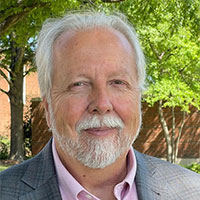
Marty Ralph, Research Meteorologist and Director of CW3E at Scripps
Attending week two
Martin “Marty” Ralph is a Scripps research meteorologist who is focused on understanding the physical processes that create extremes in precipitation ranging from flood to drought, and on advancing associated observations, predictions, climate projections and decision support tools. Much of his research has focused on atmospheric rivers—long, narrow bands of concentrated moisture in the atmosphere—and their role in mid-latitude precipitation. Ralph currently leads the Center for Western Weather and Water Extremes (CW3E) at Scripps, which aims to provide cutting-edge science, technology and outreach to support effective policies and practices that address the impacts of extreme weather and water events on the environment, people and the economy of Western North America.

Eesha Rangani, Scripps Master’s Student
Attending week two
Eesha Rangani is a master’s student at Scripps, where her research is focused on understanding the evolutionary position of deep-sea nereidid worms using genetic data and morphology. She is also interested in understanding the diversity and evolution of microbial communities in the deep sea—a largely unexplored area that is under serious threat due to climate change and deep-sea mining. “It is already known that the biodiversity that dwells in the deep plays a crucial role in regulating biogeochemical cycles, therefore protecting these pristine habitats is a responsibility,” said Rangani. By participating in COP27, she hopes to have the opportunity to understand if policymakers recognize and highlight the role of the deep sea with regard to our ever-changing climate. “Attending COP27 will enable me with a platform to have these conversations and discuss possible solutions with counterparts who share similar interests,” she said.
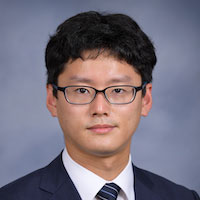
Tomoyuki Suematsu, School of Global Policy and Strategy Master of Public Policy Student
Attending week two
Tomoyuki Suematsu is a second-year Master of Public Policy candidate at the UC San Diego School of Global Policy and Strategy, where he is focusing on climate change policy. Before coming to the graduate school, he worked at Japan's Ministry of Finance for six years, developing overall economic and fiscal policies, including its green growth strategy. "Climate change measures are complicated, costly and difficult to agree on, but we must find a way to move forward efficiently, with good cooperation between the public and private sectors and between developed and developing countries," he said.
Those interested in following the delegation’s activities can subscribe to Ocean Pavilion’s daily newsletter, which will be distributed Nov. 7-18, or follow the conversation on social media using the hashtag #ForOurBlueBluePlanet. Visit the Ocean Pavilion schedule to view the full list of sessions involving Scripps.
Learn more about research and education at UC San Diego in: Climate Change
Share This:
You May Also Like
Stay in the Know
Keep up with all the latest from UC San Diego. Subscribe to the newsletter today.




